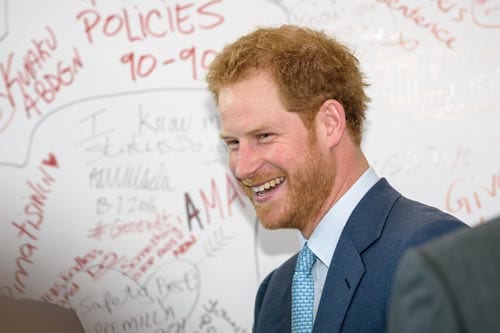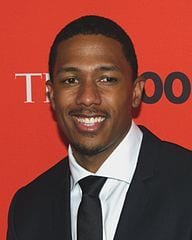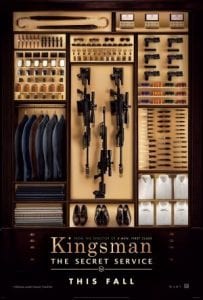
How to network and get ahead in your chosen career
The socially anxious and shy may be scared away by the mere thought of career fairs, instead being content with shooting out resumes to “HR Director” via the anonymity of their couch and the internet. Thus, such people are leaving their career networking strategies to wallow in infancy and they are making a grave mistake as career fairs can be one of the most useful tools for a job-seeker and is essential to developing ones’ career networking strategies. Think about this: you could send out 20 resumes to online postings directed to the elusive “Hiring Director.” If you visit 20 booths at a career fair, you have now met, shook hands and exchanged business cards with 20 people who have a say in hiring at their company. This is, simply put, an invaluable opportunity to put your foot in the door and is the most important of all the career networking strategies.
Career fairs, however, are only effective if you know the basics of career networking strategies. So how do you prepare?
- Preparation
Knowing how to present yourself well is the point of honing your career networking strategies. This extends to your resume, cover letter and your face-to-face interaction with the company.
Look over your resume again, and again. Even if you shine during your interaction with the company’s representative, spelling errors and a shoddy format will give your chances a quick and brutal death. Visit our sample resumes section for examples of good resumes. Be sure to bring plenty of copies with you and upload the most recent version to your LinkedIn profile – the link to which should be included in your resume.
Imagine you’re in an elevator and the other passenger asks: Who are you and what are your goals? You will have roughly 30 seconds to communicate what you have spent your lifetime figuring out. Of all the career networking strategies, this should be the first thing a job-seeker should be equipped with, yet is one of the most neglected. Keep it around 30 seconds and remember it well.
Suzanne Hilbig of the Career Center at the University of California Berkeley suggests starting with your “name, major, relevant experiences, and end with a question: do you think there’s a place for someone like me in your organization?”
Successful career networking strategies begins with research. Know which companies you want to target at career fairs and know them inside and out. Who are they? What is their goal? Where do you fit in? “Employers tell us that they really look down on it when a student comes up and asks ‘what do you do?’” Hilbig said. If you’re interested in working with them, then you should know the company as well as them. Prepare some challenging questions so you will have something to talk about when you are attending career fairs.
Hilbig suggests students, before attending career fairs, should “access the list of who’s coming. First of all so they can pick the tables they want to go to. And once they’ve done their research they can ask intelligent questions.” Without research, all of your career networking strategies will invariably suffer.
Write a cover letter targeting these companies and slip these to the representatives with your resume in a manila envelope. This shows that you cared enough to know that they would be attending the career fair and that you singled them out with a personalized cover letter. Personalization is what many employers look for through all levels of the hiring process and should be central to your career networking strategies.
- Working the Fair
So now that you are dressed appropriately, have a legion of challenging questions for the companies, and carry a stack of envelopes to distribute, how do you go about executing these career networking strategies?
Confidence is the name of the game at career fairs and can trump any of the other career networking strategies. Begin by giving a firm handshake, introducing yourself, and remembering their name. “In many ways, a career fair is a test of your social skills. Don’t forget the basics of a nice smile and appropriate eye contact,” says Suzanne Hilbig. If you’re clammy, nervous, or stuttering at career fairs, chances are they think that insecurity is going to transfer with you into a position. Don’t give them the opportunity to think that about you by practicing the personal interaction aspect to career networking strategies. Be professional and calm, yet conversational.
Ask those questions you’ve been preparing, but don’t feel restricted to the script. These questions are meant to be ice-breakers at career fairs, a way to get the conversation going. Chances are they are going to be more impressed with your ability to start and maintain a discussion about a specific topic rather than a series of disconnected questions. When the conversation falters, bring up a new question that you want answered. Remember that research is the prerequisite for successful career networking strategies.
Finally, end with restating your enthusiasm about the company, and how your experiences can help the company. This last point is something that is applicable not only with your initial introduction to the company, but is something that should be stated in your resume, cover letter, your interview and should permeate throughout your career networking strategies. Hand over your resume and cover letter in the envelope. Thank the person again for the opportunity to speak with him or her and make sure you exchange business cards – or at least a way to follow up from this initial correspondence.
- Follow-Up
After you have made the rounds at career fairs, jot down any notes you think might be relevant: certain names you might forget, the companies that seemed good, and any information that stood out. Also record follow-up documents that you assured the representatives you would send. This would include the website that shows off your work, sample reels, etc. One of the trendier career networking strategies is through social networking sites such as LinkedIn. Polishing your profile and including that link can help give the employer a fuller picture of who you are.
The final step of career networking strategies is the follow-up. Send a thank-you note to the career fair representative or to whatever contact information you received. Many applicants fail to do this –but doing so quickly assures that you are still fresh in their minds when they review fair attendees and communicates your desire to work for them and your proactive nature.
This can also be done with a quick e-mail, “saying they enjoyed speaking with them and maybe mention something specific they talked about and expressing their interest in learning more about the company,” Hilbig said. This is the final step and yet it still includes the personalization and specificity required for successful career networking strategies.
When you consider your career networking strategies, a career fair is the context where you can practice all of them. It includes doing your research, tailoring your documents, being friendly, yet confident and, finally, restating your desire to be a part of their company through a friendly and brief follow-up. It not only allows a potential job lead, but can give you the necessary practice to hone career networking strategies that you can use in any professional context.
Be sure to check out our lifestyle section so you’ll know what to wear for an interview while searching for a job.















